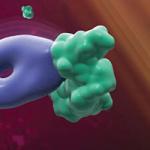
Eliot L. Gardner, Ph.D.
Senior Investigator
Molecular Targets and Medications Discovery Branch, Neuropsychopharmacology Section
NIDA
Research Topics
Research in the following areas is directed toward the development of effective anti-addiction, anti-craving, anti-relapse medications:
- Basic brain mechanisms underlying drug addiction, craving, and relapse
- Endocannabinoid brain mechanisms and addiction
- Dopamine D3 receptor antagonists
- Glutamatergic compounds, with emphasis on the metabotropic glutamate receptor
- GABAergic agonists, with emphasis on the GABA-B receptor
- Slow-onset long-acting dopamine transport inhibitors
- Drugs acting on the endocannabinoid brain system
Selected Publications
- Vorel SR, Liu X, Hayes RJ, Spector JA, Gardner EL. Relapse to cocaine-seeking after hippocampal theta burst stimulation. Science. 2001;292(5519):1175-8.
- Vorel SR, Ashby CR Jr, Paul M, Liu X, Hayes R, Hagan JJ, Middlemiss DN, Stemp G, Gardner EL. Dopamine D3 receptor antagonism inhibits cocaine-seeking and cocaine-enhanced brain reward in rats. J Neurosci. 2002;22(21):9595-603.
- Xi ZX, Spiller K, Pak AC, Gilbert J, Dillon C, Li X, Peng XQ, Gardner EL. Cannabinoid CB1 receptor antagonists attenuate cocaine's rewarding effects: experiments with self-administration and brain-stimulation reward in rats. Neuropsychopharmacology. 2008;33(7):1735-45.
- Zhang HY, Gao M, Liu QR, Bi GH, Li X, Yang HJ, Gardner EL, Wu J, Xi ZX. Cannabinoid CB2 receptors modulate midbrain dopamine neuronal activity and dopamine-related behavior in mice. Proc Natl Acad Sci U S A. 2014;111(46):E5007-15.
- Xi ZX, Muldoon P, Wang XF, Bi GH, Damaj MI, Lichtman AH, Pertwee RG, Gardner EL. Δ8 -Tetrahydrocannabivarin has potent anti-nicotine effects in several rodent models of nicotine dependence. Br J Pharmacol. 2019;176(24):4773-4784.
Related Scientific Focus Areas
This page was last updated on Friday, November 2, 2018

